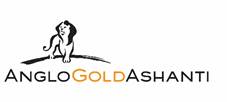Much of the planet consists of items that belong to everyone, for example air or oxygen. People expect their Governments or world Governments to regulate and protect individual rights with regards sustainable supply of clean air.
Water on the other hand, mostly needs to be transported or cleansed, purified or treated and although a global resource, is also regarded as a commodity that could be sold. Frequency and other created weath, such as agreed protocols for exchanging and routing traffic on an interconnected network as well as names (as in domain names) could also be public assets that Joe public expects his or her Government to regulate and protect.
Small countries like South Africa could add to the sustainability of a growth environment for it’s people by legislative force for the early adoption of ipv6, effectively unbundling any restraints and cost factors to the technology arena related to the fake scarcity of ip numbers.
Microsoft reportedly paid around R900 per IP adress (ipv4) from Nortel (us$7.5 million for just under 667000 IP adresses) and the grey market trading in IP addresses is a booming business as those that should be promoting the demise of ipv4 is actually in no hurry to do so. The USA has many millions of unused IP numbers (ipv4) and many large multinationals are in no hurry to make the switch to ipv6.
June 6th 2012 was hailed as ‘World Ipv6 switch on day’ and yes, the same event was also held in 2011, after the event in 2011 many hosts switched off their dual ability to accept ipv6 traffic. The plan with the June 6th 2012 day was to have hosts continue accepting ipv6 traffic on an ongoing basis. Ipv6 provides for 340 trillion groups of a trillion addresses. With currently just a few billion people on the planet, Ipv6 allows everyone (and every device) on the planet to actually have an IP address and then some.
To get ahead of the commercial costs related to ipv4 allocation and use is one thing, but what is sorely needed is also a national approach to the domain space. Freeing up the .za zone to allow for the unlimited registration of sub domains would certainly stimulate content growth as well as guaranteeing at least 500 000 sub registrations which the SA Government could easily allow for a payment of a once off amount of R1000 and then have no annual renewal fees. Just investing R20m will provide adequate income for the operation of the .za zone file forever and the SA Government would profit just under half a billion rands in quick income.

